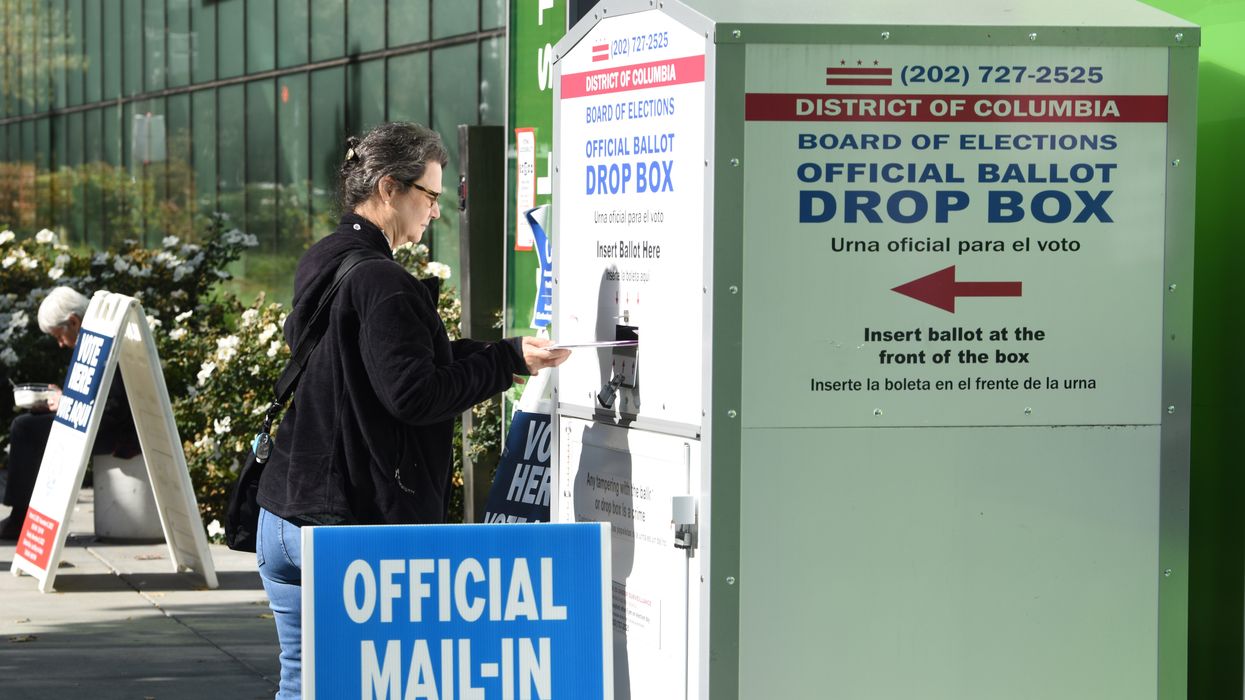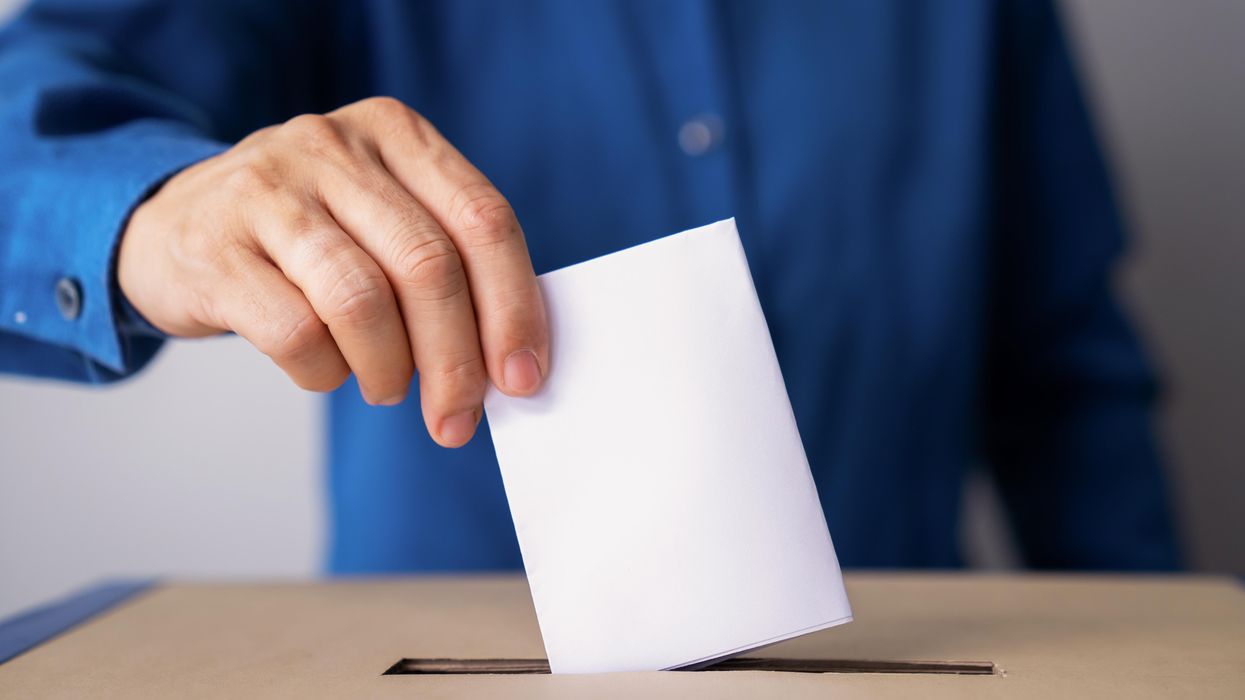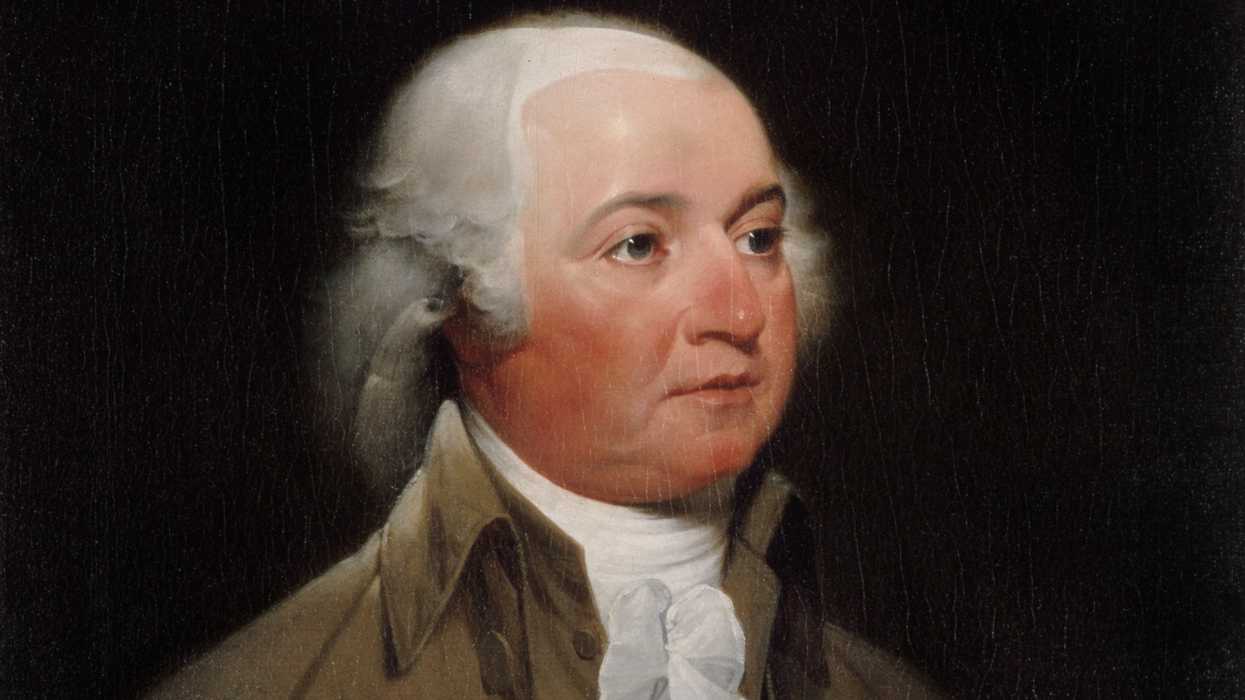Rogers is the “data wrangler” at BillTrack50. He previously worked on policy in several government departments.
Should you be allowed to vote if you aren’t an American citizen? Or according to the adage ‘No taxation without representation’, if you pay taxes should you get to choose the representatives who help spend those tax dollars? Those questions are at the heart of the debate over a bill to restrict voting to U.S. citizens.
IssueVoter is a nonpartisan, nonprofit platform dedicated to giving everyone a voice in our democracy. As part of its service, IssueVoter summarizes important bills passing through Congress and sets out the opinions for and against the legislation, helping us to better understand the issues.
BillTrack50, which partners with IssueVoter on this project, offers free tools for citizens to easily research legislators and bills across all 50 states and Congress. It also offers professional tools to help organizations with ongoing legislative and regulatory tracking.
Legislation moving through Congress would prohibit non-U.S. citizens from voting in elections, including public office elections, ballot initiatives and referendums, in the District of Columbia. The bill also would repeal the Local Resident Voting Rights Amendment Act of 2022, which had granted voting rights to noncitizen residents of D.C. The bill aims to restore the previous voting system where only U.S. citizens could participate in D.C. elections.
Notably, noncitizens are already banned from voting in federal elections under existing law; this bill would only prohibit their participation in local elections, like mayor, school board, and city council. It is also important to note that a noncitizen is not the same as an illegal or undocumented immigrant, as many lawful temporary and permanent residents do not have full citizenship status.
Read the IssueVoter analysis of H.R. 192 here.
What is the history of the bill?
After being first introduced in October 2022 by Texas Rep. August Pfluger (R), H.R. 9172, quietly died in committee. He claimed that the bill was necessitated by a '"nearly-unanimous vote by D.C. City Council to advance a bill that would allow noncitizens to vote in local elections — even if they have only resided in D.C. for 30 days." He went on to say, "If you’re in the United States illegally, you don’t have the right to vote — period. Liberals in Washington, D.C. who want to allow noncitizens to vote are putting the integrity of our election system at risk."
He was referring to the Local Resident Voting Rights Amendment Act, passed in October 2022. Due to its non-state status, D.C. must send all of its legislation to Congress for review prior to adoption, and Congress can pass a continuing resolution (which must be signed by the president) to block any bill. In this case, according to Ballotpedia, the bill fended off bipartisan opposition and passed the review in March 2023 — only to face a lawsuit by seven D.C. voters, who claimed they would be unfairly discriminated against if the law came into effect.
In March 2024, the challenge was finally dismissed by the U.S. District Court for the District of Columbia, which concluded that the plaintiffs' votes "will not receive less weight or be treated differently than noncitizens’ votes; they are not losing representation in any legislative body; nor have citizens as a group been discriminatorily gerrymandered, ‘packed,’ or ‘cracked’ to divide, concentrate, or devalue their votes."
This ruling was undoubtedly the spur to give Pfluger’s bill a new lease of life. He reintroduced it in January 2023 as H.R. 192 but it also languished in committee until May 2024, when it finally had a hearing and then quickly passed out of the House. Fifty-two Democrats joined Republicans in voting in favor of the bill, giving it a healthy majority of 262-143. It is now in committee in the Senate.
What is the state of noncitizens voting in the United States?
It's difficult to know exactly how many noncitizens live in the United States. According to the Pew Research Center, there were over 25 million people living in the U.S. in 2020 who were not citizens. This included approximately 12 million permanent residents who legal permission to be living in the country, as well as 2 million temporary residents visiting the U.S. for a period of time as students, tourists, foreign workers, foreign officials, etc. Pew's figure also includes approximately 11 million immigrants living in the U.S. illegally. But how many of those can vote?
This comprehensive Ballotpedia analysis shows there is a long history of legal noncitizen voting. In fact, 33 states allowed it between 1776 and 1924. As American attitudes to immigration changed, however, more and more states changed their constitutions to prevent non citizens voting.
Currently, D.C. and certain municipalities in California, Maryland and Vermont allow noncitizens to vote in some or all local elections. Seven states explicitly prohibit noncitizen voting and a further 12 states put no impediments in the way of municipalities passing their own voter qualification laws. Federal law makes it unlawful for noncitizens to vote in federal elections. The law imposes a penalty of up to one year in prison for violators and makes them ineligible to receive visas, ineligible to be admitted to the U.S. and deportable.
People in the U.S. illegally shouldn't vote
Proponents of HR 9172 cite immigration concerns as the main reason why the bill is needed. Speaker Rep. Mike Johnson (R-La.) warned, "due to the wide-open border that the Biden administration has refused to close — in fact that they engineered to open — we now have so many noncitizens in the country that if only one out of 100 of those voted, they would cast hundreds of thousands of votes." He goes on to claim that due to the thin margins in swing state districts, this could determine the outcome of congressional and presidential elections.
Rep. Bryan Steil (R-Wis.) puts it this way: "American elections are for American citizens. And we intend to keep it that way." He also claims that allowing noncitizen voting even for local elections makes it difficult for states to maintain clean voter registration lists, and suggests it could even confuse noncitizens as to which elections they are entitled to vote in and which they aren't.
A solution to a problem that doesn't exist?
Opponents are clear that the bill is merely an attempt to undermine faith in U.S. elections. The League of Women Voters argues, "This is just another attempt to spread misinformation about our democratic systems and to sow distrust in our elections." The National Immigration Forum points out that strict laws banning noncitzen voting in federal elections have been in place for more than 100 years, and that only a handful of states allow very limited noncitizen voting.
Jose Barrios, who leads the DC Latino Caucus (a Democratic group that advocated for the D.C. Local Resident Voting Rights Amendment Act), said the group’s support for the bill was based on a basic premise: that all people impacted by local laws should “have a voice in who enacts those laws.”
Noncitizens pay taxes, run businesses and send their children to public schools, he said. He described the argument that allowing noncitizens to vote would “dilute” the votes of American citizens as a mirror of efforts throughout history to block expanding the franchise to various demographic groups.
Voting on the ballot?
It remains to be seen whether the bill will make further progress in a Democrat-controlled Senate. But looking at the plethora of other voting related legislation being introduced across the U.S., and a highly contentious election looming in November, we can be sure that voting rights and the integrity of American elections will continue to be a hot button topic for some time to come.





















